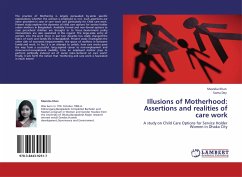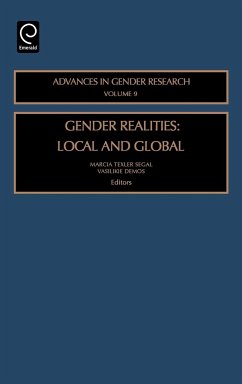
Illusions of Motherhood: Assertions and realities of care work
A study on Child Care Options for Service Holder Women in Dhaka City
Versandkostenfrei!
Versandfertig in 6-10 Tagen
32,99 €
inkl. MwSt.

PAYBACK Punkte
16 °P sammeln!
The practice of Mothering is largely persuaded by some specific expectations whether the woman is employed or not. Such assertions are more provident in case of care work and particularly for Child care work. Present study explores the dynamics of child care options for service holder urban mothers in Bangladesh. Available formal and non-formal options to raise pre-school children are brought in to focus. Government policy interventions are also examined in this regard. The large-scale entry of women into the work force in last two decades has vitally changed the fabric of work and family life...
The practice of Mothering is largely persuaded by some specific expectations whether the woman is employed or not. Such assertions are more provident in case of care work and particularly for Child care work. Present study explores the dynamics of child care options for service holder urban mothers in Bangladesh. Available formal and non-formal options to raise pre-school children are brought in to focus. Government policy interventions are also examined in this regard. The large-scale entry of women into the work force in last two decades has vitally changed the fabric of work and family life in Bangladesh. Present study investigates the other side of economic empowerment; the space of mothers in between family and work. In fact it is an attempt to unlash, how care works pave the way from a successful, long aspired career to non-employment and downward occupational mobility; how an employed mother pays to perform politically induced set of social roles centered on care work? Finally, it sets forth the notion that mothering and care work is fascinated in much extent












